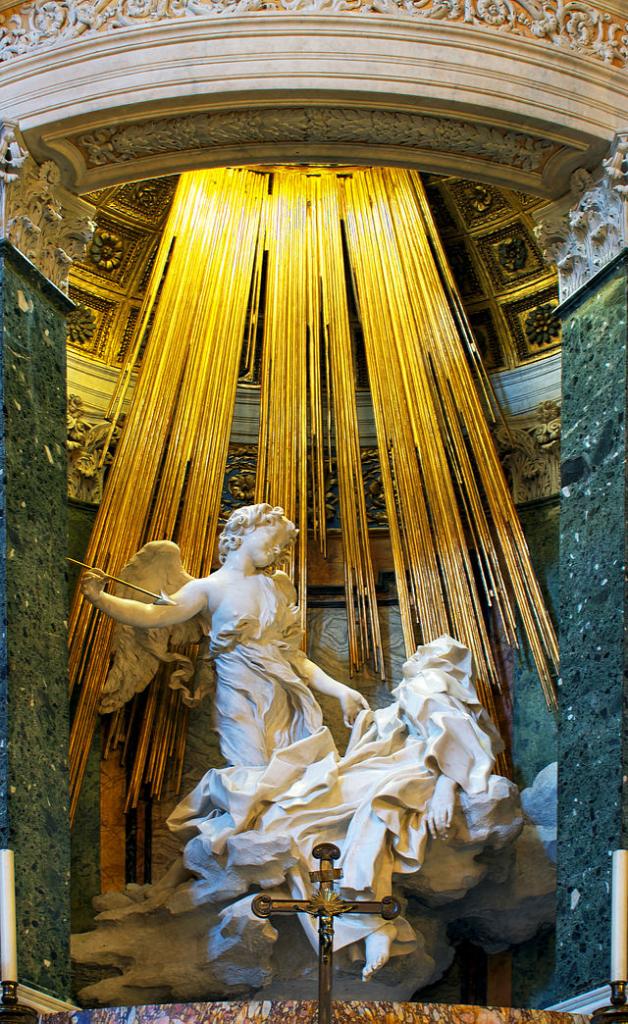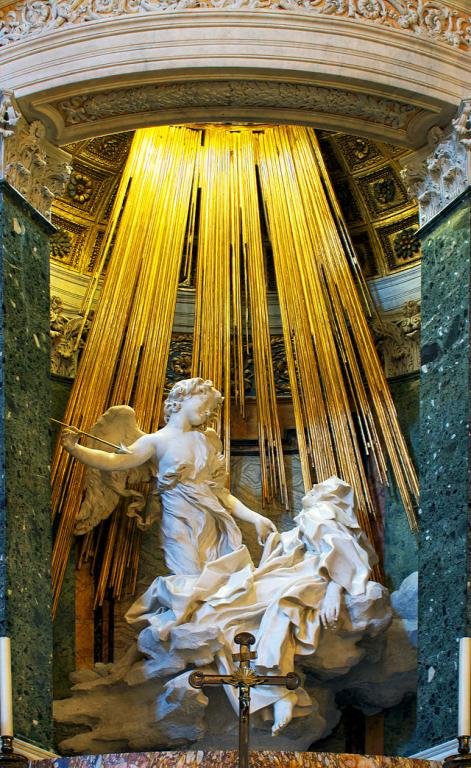
Bernini
I am currently attending a retreat for the Unitarian Universalist Clergy Conference at the Franciscan Renewal Center in Scottsdale, Arizona. I really enjoy being with my colleagues. The majority are actively involved in missionary work in their parishes.
A presentation on themes of personal and systemic trauma by Reverend Elizabeth Stevens. (This is really good. If you’re the head of a religious organization like a church, you should book a workshop with her.)
But what stuck with me and spurred this short reflection was that when we talk about spirituality and spiritual practices, many of my colleagues seem to assume that the point of “spiritual” is a deep state of equilibrium. That’s what it means. A kind of psychological balance.
I know this is not just a UU issue. I have looked into training opportunities for several programs on spiritual direction and this seems to be exactly what they are training people to teach as spiritual directors. balance. A sense of harmony. Maybe it’s a sense of security. Maybe even some joy.
And let me be frank. I have no objection to these goals. We can all use perspective. We all need a little peace and hopefully even joy in our lives.
But this is not a spiritual project in my opinion. Now, I think he thinks the two things are deeply related and hopefully intertwined. I call one the awakening project and the other the growth project. What I see in using the spiritual as an equilibrium goal is that we are focusing on a very important part of growth. Not all. But it’s important.
Spirituality to me is something else. It’s about awakening. “Awakening” or “enlightenment” in the Zen Buddhist terms I generally prefer. But I see much the same thing in those who strive to know God in the Abrahamic tradition. A similar language is also used in Hinduism. I am reminded of Pantajari’s yoga maxim. Usually interpreted as: how to know god.
Find your beloved.
For me, spirituality is a project to meet the ultimate. real. God. this. Words that call for expression in capital letters. (Even if in my own tradition there is an urge to see the exact identity of the sacred and the profane that asks us to represent the Buddha without a capital B…) Developing Wisdom I have come to call this non-duality. Different religions view this non-duality in somewhat different ways. But essentially it’s about finding intimacy with what is.
And spirituality is the part of us that moves us, moves us, and is fully involved in this encounter.
Now, one of the problems I’ve seen in the spiritual and religious world is that too often people who are dedicated to spiritual things, when they end up becoming spiritual teachers, are brought down by scandals and scandals. That’s it. Gaps often exist, but when exposed to testing, suffering often occurs. That’s why I’m interested in the growth part of the equation.
but. I certainly hope that in this respect we do not lose anything spiritual beyond happiness and equilibrium.
Our hearts are dreaming.
A whisper from deep within.
That’s all. Just a bubble in my mind, informed by a moment during my retreat.
I’ll leave it here for now.

